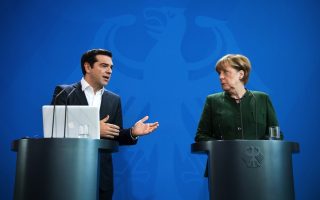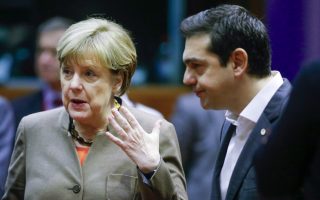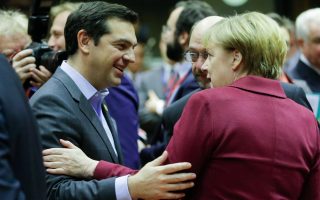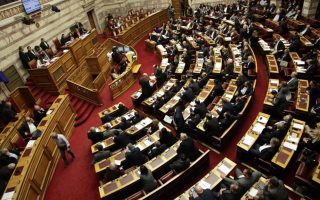Berlin gives Tsipras the cold shoulder
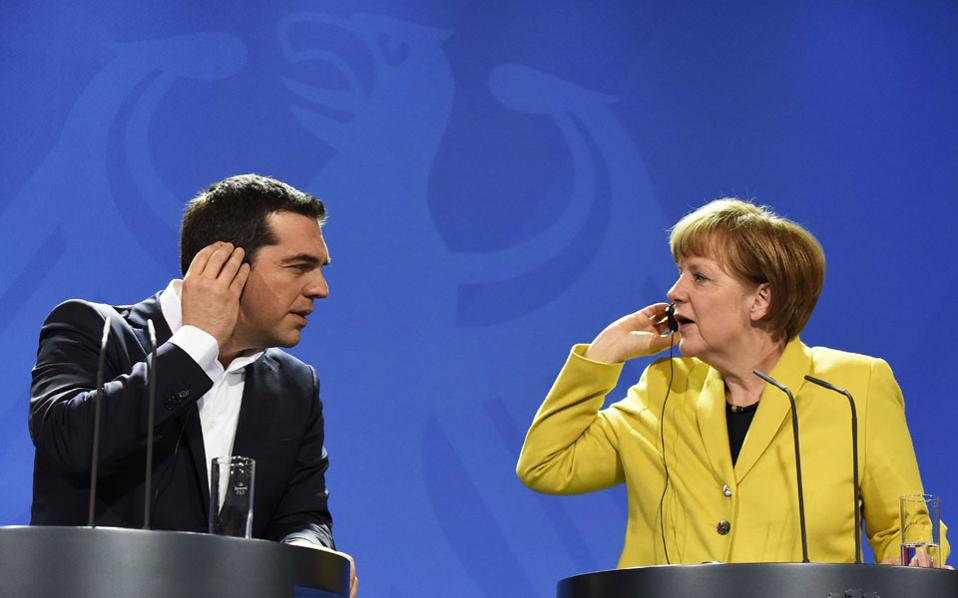
Greek hopes of a political solution to the standoff between Athens and the European Stability Mechanism (ESM) with the help of Angela Merkel were dashed yesterday after the German chancellor told Prime Minister Alexis Tsipras that a decision on the matter lies not with Berlin but the country’s creditors – the European Commission, the European Central Bank and the International Monetary Fund – and the Eurogroup.
“This is not the place for decisions to be taken. That is in good hands with the three institutions and the Eurogroup,” Merkel said during a joint press conference on Friday in the German capital.
Greece infuriated several eurozone members, including Germany, after announcing and legislating a one-off Christmas supplement for low-income pensioners.
The measures announced last week by Tsipras in a televised address also included a suspension of value-added tax hikes – as agreed with creditors – on islands of the eastern Aegean that have carried the greatest burden during the refugee crisis.
The ESM, which had not been consulted, responded by freezing a package of debt relief measures, saying it violated the terms of the bailout deal struck in 2015.
Tsipras went to Berlin hoping to convince Merkel to intercede in the rift. But the chancellor limited herself to saying that she is open to discussions with Tsipras.
“The Greek prime minister’s assessment of the situation will certainly play a role in our discussions.”
Moreover, she showed no willingness to weigh in on the tough stance adopted by her finance minister, Wolfgang Schaeuble, with regard to Greece and the reforms it must implement in order, as he said, to remain within the eurozone. Instead, she said that talks with Tsipras “were not always easy,” even though, she noted, they are always candid.
Tsipras, for his part, outlined the progress made by the Greek economy and stressed the importance of the debt relief and Greece’s incorporation in the ECB’s quantitative easing mechanism. He said it was necessary for the country’s partners to “take courageous decisions.”
Meanwhile, according to Spiegel Online,Finance Minister Euclid Tsakalotos admitted on Friday to a group of German lawmakers that the government’s announcement of the measures, without prior consultations with the country’s creditors, was a public relations blunder. He attributed the misstep to time constraints because the extra spending had to be factored into the 2016 budget. If not, he said, it would have burdened the 2017 budget.
